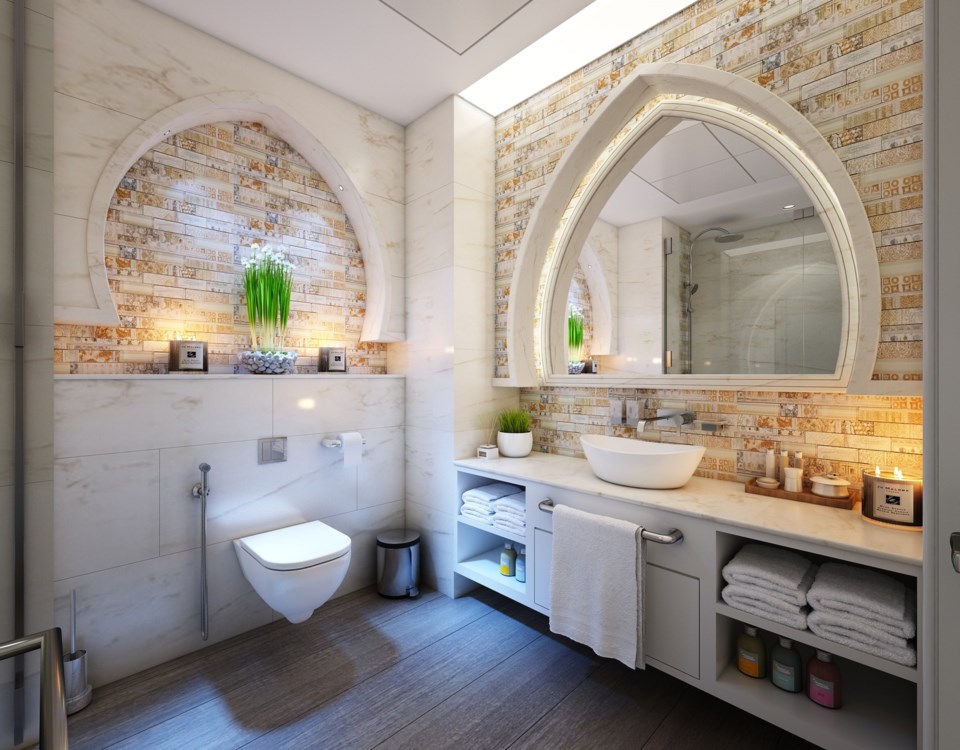On average, Squamish residents can expect a total increase of $28 for their sewer, water, and solid waste collection bills this year.
Council adopted the utility bylaw for this year on Jan. 14, which brings the total cost of those services to $1,353, up from last year's $1,325 annual fee.
The breakdown of rates is as follows.
Annual sewer rates are $595, up from $558 last year. However, the old sewer frontage fees, previously $40, are being eliminated and folded into the sewer rate.
All thing taken into account, staff say this will increase the sewer bill by $3 this year.
Flat, non-metered water rates have risen to $469, up from $424. Similar with sewers, the previous $33 water frontage fee is being eliminated and folded into the water rate.
Altogether, staff say this will add an extra $12 to the water bill for non-metered users.
Fees for curbside waste pickup is now $200 for a small tote; $289 for a medium and $444 for a large tote.
Previously, the annual rates were $195, $270 and $415, respectively.
There are a few more details with respect to water rates, as this service is starting to get metered.
The three multi-residential properties currently on water meters will experience a rate increase. Multi-family senior complexes will have some leeway — the new rates will be phased in over two years.
This development is happening because the District found it was under-charging multi-residential properties that were on water meters.
Collectively, the three complexes paid $16,099 in 2017, but under the old fixed rates they would've paid a much higher price of $68,238, altogether.
As a result, the District created a new rate structure for those homes.
For 2019, the metered flat rate for senior housing is $131 per unit and for other multi-family residential units, the base will be $164 per unit.
Properties where water usage starts exceeding 112 cubic metres per unit, will have to pay $1.46 for every extra cubic metre used.
Landfill tipping fees are expected to increase as well.
Some of the causes of increased fees are the funding of an outreach position, as well as contamination.
Council asked staff to craft tipping fee rates in order to pay for an employee who would help residents and businesses create better recycling programs for their homes and businesses.
The District said this worker would first try to help homes and businesses work things out, but if push comes to shove, this employee could start issuing fines.
Staff recommended this to council after it was found Squamish businesses and homeowners were doing a less-than-stellar job of sorting their recycling, ranking substantially below average when compared with other similar communities.
One study showed that Squamish's contamination rate averaged 16 per cent, significantly higher than the provincewide norm for similar communities, which is 9.3 per cent.
Contamination occurs when non-recyclable materials get thrown in with recyclables.
Another study looked at the Squamish landfill and found only 24 per cent of the material found there couldn't be recycled or composted.
This suggested three-quarters of the items in the landfill should've been put in a blue or green bin rather than the garbage.
Initially, a $42,000 half-time position was proposed to help educate the public, but at the Jan. 8 meeting, when the bylaw passed third reading, Coun. Armand Hurford proposed making it a three-quarter-time position. The rest of council supported this.
"The scope of the position will lead to, I believe, some savings at the landfill and hopefully eliminate the need to expand that and will help set us up to hit other targets," said Hurford.
"I'll support this, as well, with the knowledge that the extra fee being collected will be going to educating the community about the importance of reducing the amount of material and volume going into the landfill," said Coun. John French.
"Not a big fan of increasing fees in this way because I think our community is already overtaxed, but I think in this particular case, I think we're going in a positive direction."
Landfill tipping fees were then adjusted accordingly to help pay for the extra staff hours. The new rates are expected to add $26,553 to the District's coffers, which will help pay for the position.
Furthermore, improperly sorted material being dumped at the landfill is another cause for increased rates.
"Unfortunately, customers at the Squamish Landfill have consistently been bringing in loads of material to the [Cheekye Recycling Yard] that is charged at the clean or dirty wood rates, but are highly contaminated with soil, boulders and garbage," reads a staff report.
"The financial impact of this contamination are increased costs associated with vetting loads and disposing of the contamination, in addition to increased tipping fees in the end markets, all of which the District must pay for through the revenue from the associated tipping fees."
The adjustments are too numerous to list, but some highlights landfill tipping rate changes include an $8 increase per tonne for residential and commercial waste. Dirty wood waste is increasing by $15, while clean wood waste is up by the same amount.
Tipping rate increases for all types of materials will go up by 3.3 to 23 per cent.




